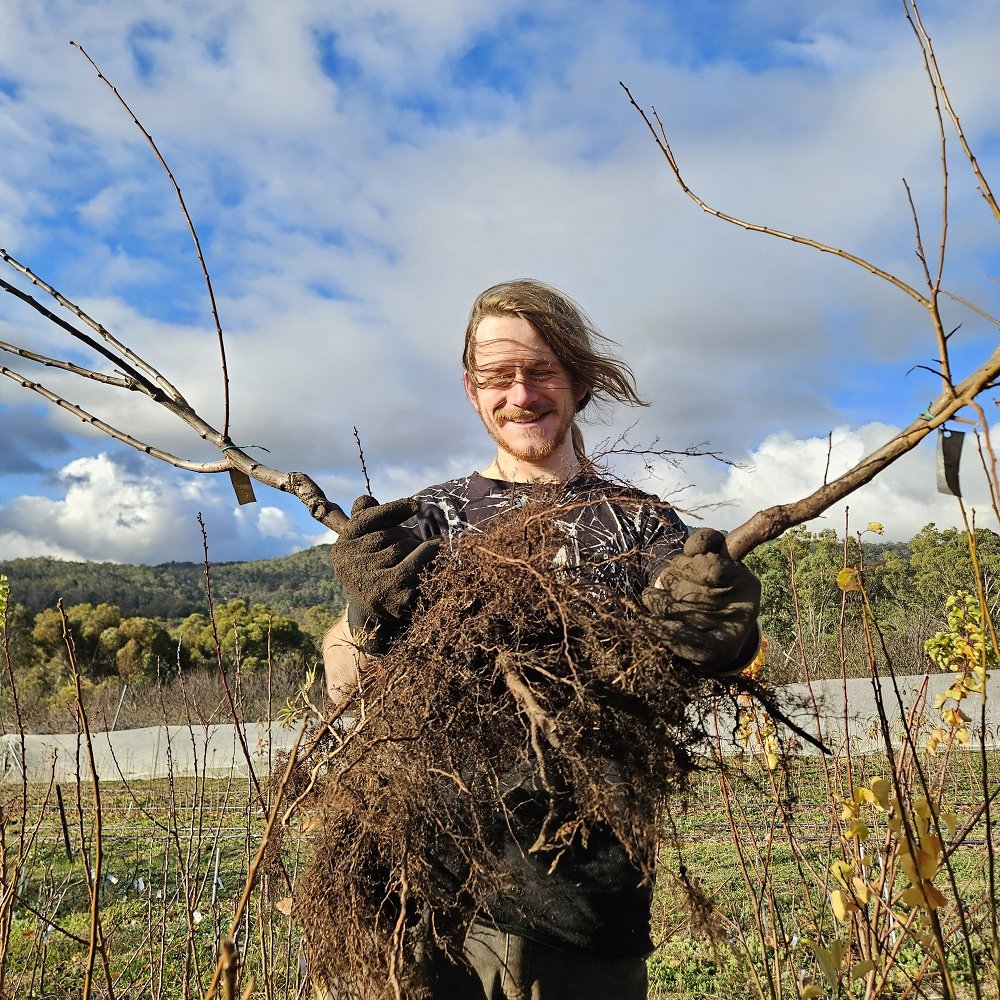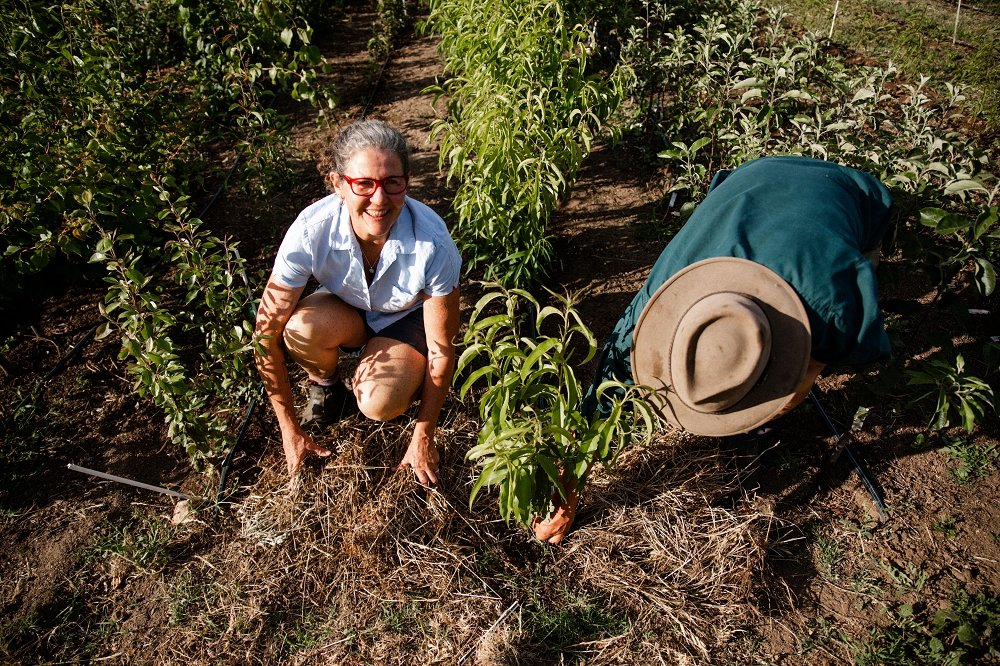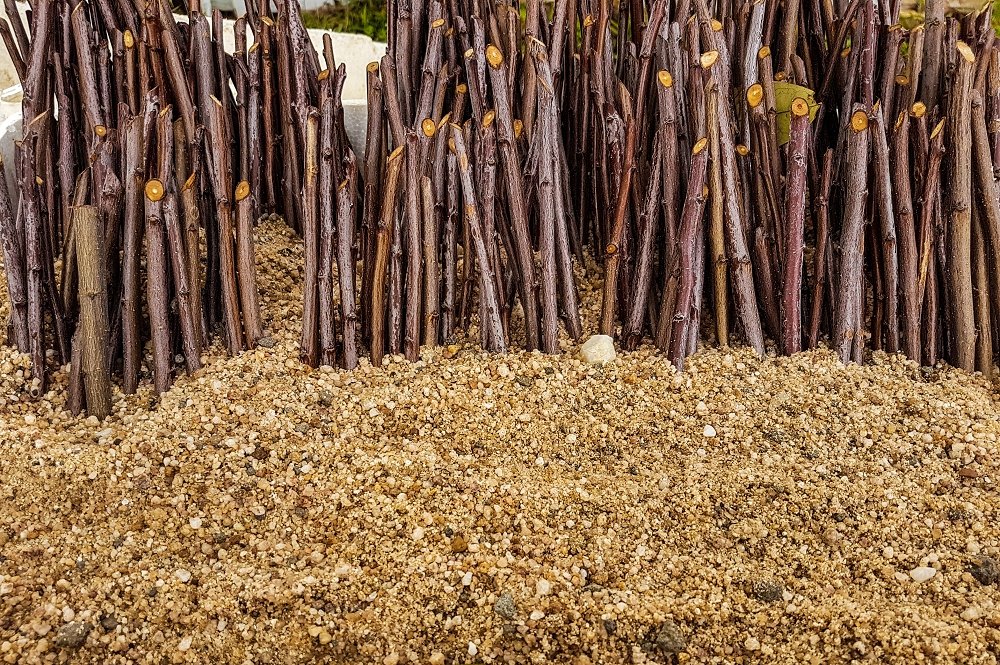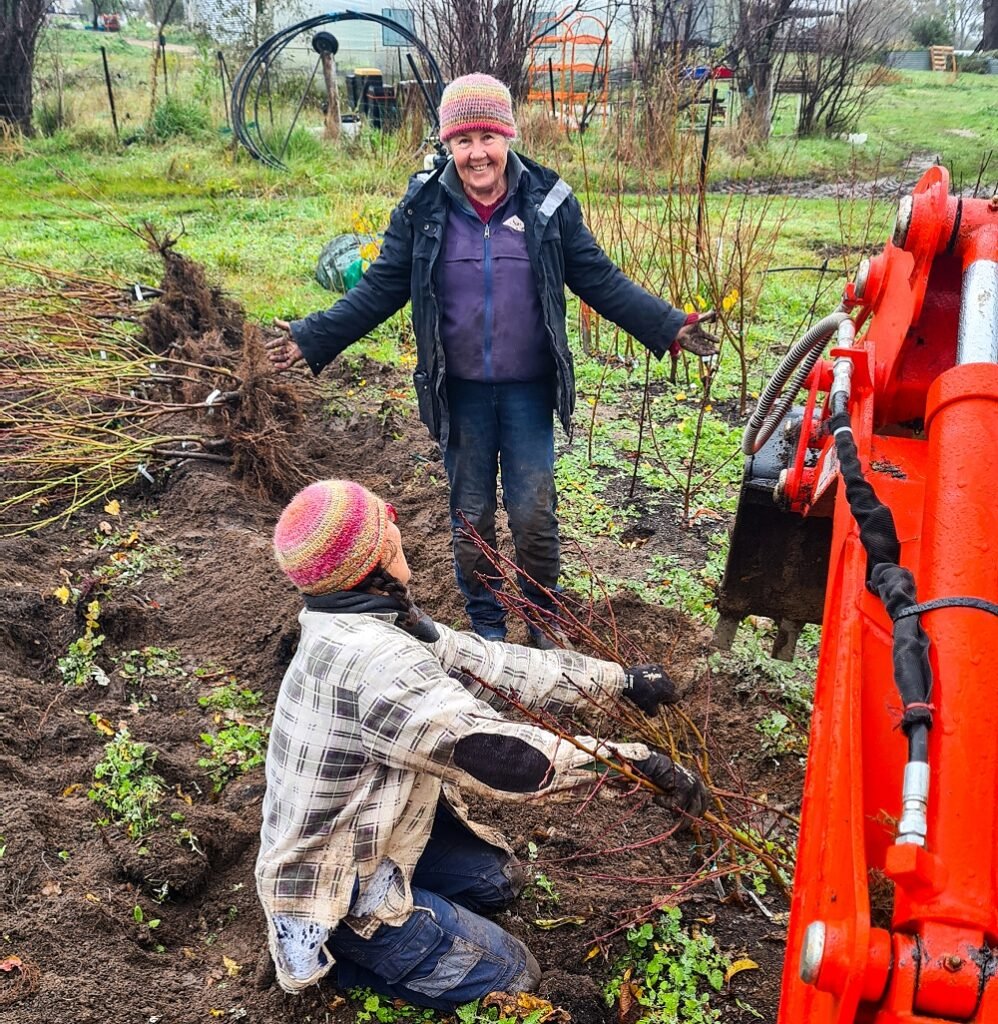
Local trees for local gardens
Have you ever thought about where the fruit trees that you buy at the shops come from?
In most cases, they’ve travelled a long way, and have been grown in a completely different climate—and soil—to your garden.
One of the reasons that Carr’s Organic Fruit Tree Nursery (the nursery here at the Harcourt Organic Farming Coop) doesn’t offer delivery is that we aim to be an uber-local nursery.
We’re growing fruit trees in this climate to suit the gardens in this climate. For a start, everything we use to grow our fruit trees comes from the farm:
- We save our own seed and take cuttings from the orchard to grow the rootstocks,
- The grafting wood all comes from our on-farm orchards, garden, and the nursery.
Our fruit trees couldn’t be more local if we tried!
We’re even experimenting with growing citrus, to see if we can grow citrus trees that are better suited to this climate.
Most citrus you buy at a nursery have been grown in much warmer areas, and usually in deep soil that is completely unlike our soils. It’s no wonder that they often take a year or two (or three, or four) to acclimatise and start to grow.
The experiment is going very well, and after trialing several, we’re confident we’ve found the best rootstock for this area. We don’t have any citrus trees for sale at the moment, but we’ll let you know when they’re ready.
If they can survive in our nursery at Harcourt, they’re going to thrive in your garden!
While our focus is hyper-local, our fruit trees should also grow well anywhere in Victoria.
Because we grow them using organic principles, the roots should be well populated with mycorrhizal fungi, which helps the trees to adapt to new surroundings. So even if you live a bit further afield, the trees should settle well into your garden.
Tree sales close soon
You can pre-order your Harcourt fruit trees online through the Open Food Network. Orders close on June 30.
The nursery will be open for just four days this season. You can pick up your pre-ordered trees at any Open Day, from 10am to 4pm each day:
- Saturday, June 28
- Sunday, June 29
- Saturday, July 5
- Sunday, July 6
You’re also welcome to drop in to the Open Days and browse the available trees (but you’ll get a much better choice if you jump online and order first!).
What trees are available?
We have SO much fun creating new multigraft and fruit salad trees each year! There are too many to list them all here, but some of the highlights this year include:
- 3-way fruit salad tree with 2 almonds (IXL & self-pollinating) and a Flavorcrest peach.
- 3-way fruit salad tree with a very delicious early apricot (Katy) and two very sweet heritage plums (Coe’s Golden Drop and Robe de Sergeant prune plums).
- 2-way fruit salad tree with a Goldmine white nectarine and the amazing (and unusual) red-flesh Peche de Vine peach.
- 4-way apple multigraft with Bramley (cooking), Gala (mid-season eating), Pink Lady (late eating), and Tropical Beauty (early eating).
- 3-way peach with Bendigo Beauty (early white peach), O’Henry (late-season yellow peach), and Stark Earliglo (really delicious early-season yellow peach) all on the same tree!
We also have multigraft plums, apricots, and quinces, and of course, lots of individual varieties as well.
Why do we specialise in apples?
Harcourt has a very long history of apple growing. The first orchards were planted in 1857, and by the 1880s, many apples from Harcourt were exported to England.
For many years, it was one of the most significant apple-growing districts in Australia, growing more than 40% of the apples in the country.
Our farm was part of the early apple industry. It was one of the earliest orchards to be planted in the Harcourt Valley after the land was stolen under colonisation. In the early days, it supplied fruit to the nearby goldfields.
So we follow a long line of folks who have cared for this land and produced delicious food here. We’d particularly like to honour the original inhabitants, the Djaara people who cared for djandak (country) for many thousands of years.
Fruit growing has changed dramatically over the last few decades. Old varieties are being replaced with modern varieties that are tougher, sweeter, or prettier than the heritage varieties. A huge percentage of our apples are exported, so the new varieties are often chosen to appeal to the export market.
Every time we lose a heritage variety, we lose a living piece of our history, and our diets become a bit more bland and uninteresting. Heritage varieties carry stories, flavours, and resilience that modern varieties often don’t.
Here at Carr’s Nursery, we strongly believe that protecting biodiversity makes us all stronger, so we invite you all to celebrate heritage varieties! You can be part of the movement to save them by finding a corner of your garden for just one more apple tree…
Yours in fruit goodness,
Katie, Merv & Liz from Carrs Organic Fruit Tree Nursery





